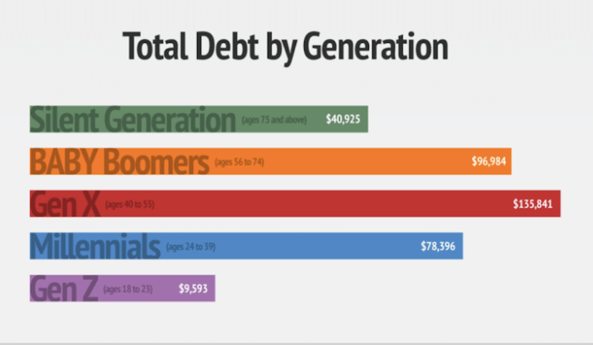For many young adults, college is the first time they are independently managing their own money. It can be a time marked with excitement and new opportunities, or anxiety and worry. Financial skills built at this time can have long-lasting benefits. Likewise, money mistakes made now will carry on into their future. That is why about 70 percent of college students worry about their finances[i]. However, with the right skills and habits, this can be a great time to lay a strong foundation for their future financial independence.
The first financial decision that most college students encounter are student loans. Before taking out student loans, make sure to explore other financial aid options, such as scholarships and tuition assistance from participating employers. Also, don’t forget the option of going to local community colleges for the first couple of years. If student loans are an option, it is best to resist the temptation to take the maximum amount one qualifies for. Instead, borrow only what is needed. This will help in the long run. College is an investment, and students need to be sure that their rate of return is worth it.
It is imperative that young people know how to budget, but unfortunately, that’s largely not the case. In fact, 43 percent of college students don’t track their spending[ii]. This is particularly crucial for those who have student loans. You can help your young people early by introducing them to the concept of budgeting well before you’re packing them up for college. A budget is not simply an account of where one’s money goes. It aids in making decisions, establishing financial priorities, and staying aware of how your money is working for you. Please always remind your college students that the less they spend now, the more they’ll be able to move forward in the future.
Another common first for college students is the first credit card. Credit cards are a good tool to establish small lines of credit, but monthly balances should always be paid off immediately. Not only does this avoid late fees, but it also avoids interest building on purchases. Also, protecting personal information is imperative. Students need to constantly be aware of who they are giving their information to and what is being charged to their account.
College is a busy time full of “firsts”. These experiences can have long-reaching consequences. Help your college students prepare a solid foundation to their financial independence by providing them with the proper education and tools for a bright financial future.
[i] https://news.osu.edu/70-percent-of-college-students-stressed-about-finances/
[ii] https://www.affordablecollegesonline.org/college-resource-center/student-guide-to-budgeting/
The opinions voiced in this material are for general information only and are not intended to provide specific advice or recommendations for any individual.



